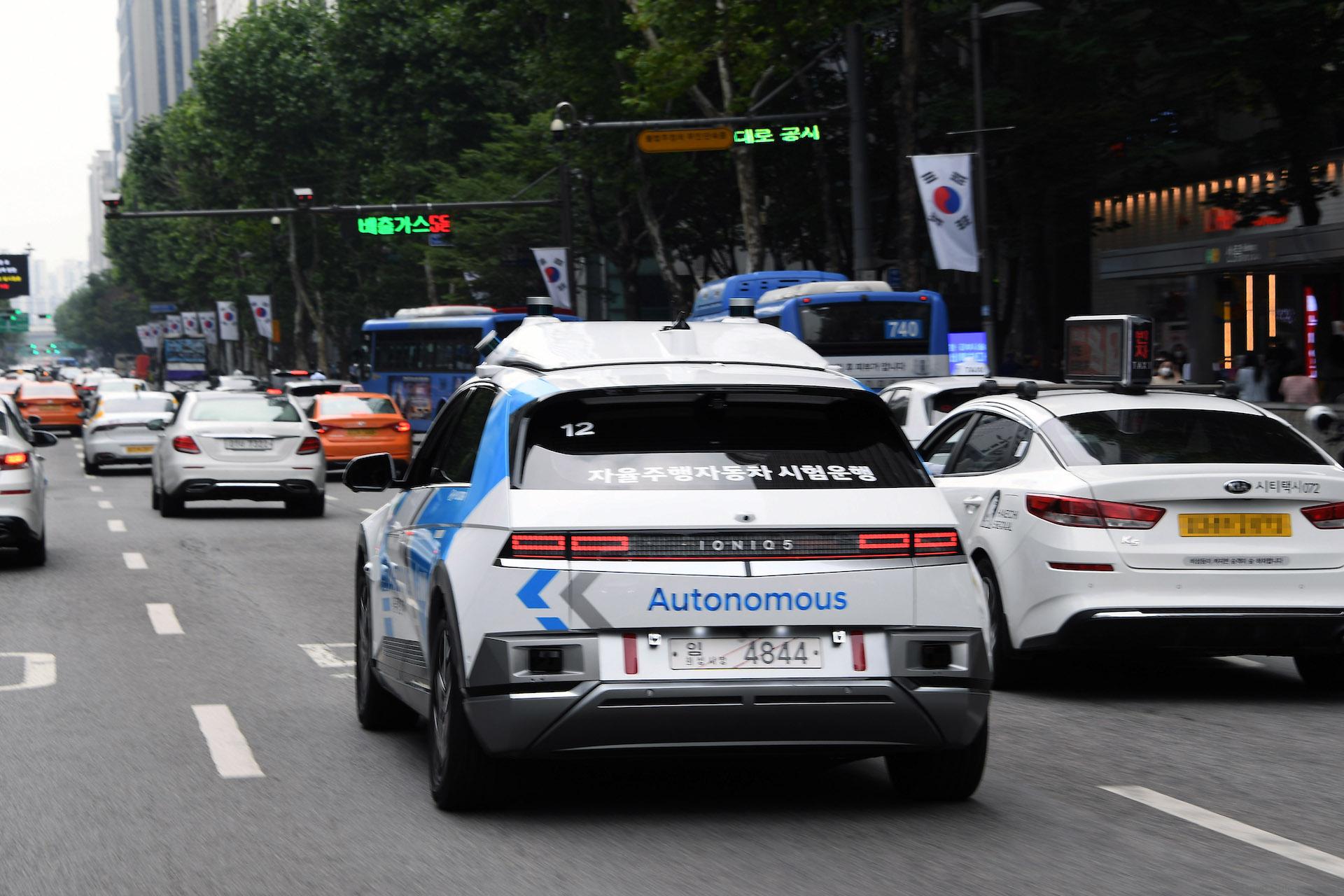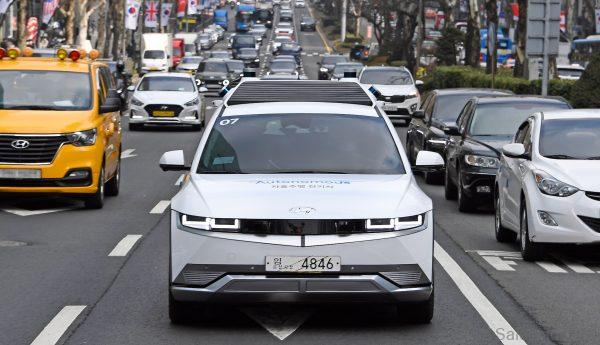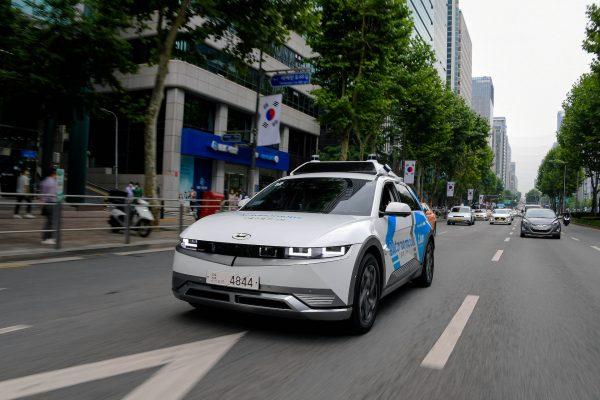The Hyundai IONIQ 5 is serving as a driverless taxi in Seoul’s most congested district.
South Korea’s Ministry of Land, Infrastructure and Transport (MOLIT) has granted a temporary autonomous driving permit to Hyundai to test out a new RoboRide car-hailing service. This is a driverless autonomous taxi programme that will be operated within the Gangnam district of Seoul. It will feature TWO all-electric IONIQ 5 cars with level 4 autonomous driving tech, which has been developed by Hyundai Motor Group.

At level 4, the vehicle performs ALL driving tasks but under specific circumstances and within a fixed area. Human drivers can still override control if necessary.

Hyundai are working with a Korean car-hailing platform called ‘i.M.’ under Jin Mobility. If the programme is successful in this initial stage, it will be expanded slowly. For now, a human driver must still be present in case of emergencies, but the car will be doing all of the driving while Hyundai collects data to improve the self-driving abilities of the car. Up to three passengers can be on a ride and the service operated from 10 a.m. to 4 p.m. on weekdays.

Here’s the press release with more.

PRESS RELEASE
Hyundai Motor Group (the Group) announced today it will pilot a RoboRide car-hailing service in Gangnam in Seoul, South Korea, utilizing IONIQ 5 battery electric vehicles (BEV) with in-house developed level 4 autonomous driving technology. The pilot RoboRide will be the first car-hailing service with autonomous driving vehicles to operate in Gangnam, one of the most congested areas in metropolitan Seoul.
For the pilot service, the Group has obtained a temporary autonomous driving operation permit from the Ministry of Land, Infrastructure and Transport (MOLIT) of Korea. It will collaborate with Jin Mobility, a Korean startup operating the artificial intelligence (AI)-powered car-hailing mobility platform ‘i.M.’. Jin Mobility will be in charge of operating the two IONIQ 5 RoboRide units on its i.M application. The Group also plans to expand the pilot service, while further developing autonomous driving technology with consideration for various conditions, such as driving stability.
Through this pilot, the Group expects to collect valuable autonomous driving data and plans to further develop the level 4 autonomous driving technology to navigate safely and flexibly in complicated urban environments.
To prepare for such a complicated driving environment, the Group has also worked with Seoul Metropolitan Government to establish a system that can connect traffic signals with autonomous vehicles. It has also gathered copious driving data since 2019 by testing autonomous driving in Gangnam area.
In addition, the Group will provide an in-house developed remote vehicle assist system to ensure safety. The system monitors autonomous driving status, vehicle and route, and supports the trip with remote assist functions, such as changing the lane under circumstances where autonomous driving is not feasible. Based on the level 4 autonomous driving technology, a RoboRide vehicle will perceive, make decisions, and control its own driving status, while its safety driver will only intervene under limited conditions.
The RoboRide pilot service will operate from 10 a.m. to 4 p.m., from Monday to Friday, to minimize any possible inconveniences on the road. Up to three passengers can be on a ride, whereas a safety driver will be in the vehicle to respond to any emergencies. The Group plans to operate an initial demonstration service for internally selected personnel, and then expand the pilot service targets to general customers in the future.
To commemorate the pilot service, Won Hee-ryong, Minister of Land, Infrastructure and Transport of South Korea, and Oh Se-hoon, Mayor of Seoul City, became the first customers to test drive the RoboRide vehicle.

